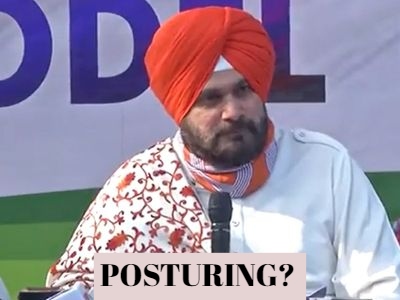

By Yogendra
First publised on 2022-01-12 09:24:14
What Navjot Singh Sidhu told news reporters a couple of days back is absolutely true in a democracy. People elect their representatives in elections and then these representatives elect the chief minister who is the first among equals. But it was the manner and the context in which he said that was interesting.
Sidhu reportedly took umbrage when reporters asked him who the Congress high command will name as chief minister. Immediately, he countered that it was not the high command but the people of Punjab, through their elected representatives, who will select the chief minister.
In doing so, he undermined the position of the party high command and went against Congress traditions. It is no secret that whenever the party has gone to polls without a strong candidate as its face, the chief minister has always been 'appointed' by the high command. The 'election' by the MLAs is just a charade. It is all decided in Delhi and party observers descend on the state capital to drill that into the heads of MLAs who then obediently and unanimously vote for the selected candidate. It is not going to be any different in Punjab this time, if the Congress wins, despite what Sidhu thinks.
Maybe it is posturing on Sidhu's part as his burning ambition to be chief minister of Punjab is universally known. Hence, he is letting the high command know that if it comes to a crunch, he will have the support of a majority of MLAs and they will vote in his favour in case the high command has another candidate in mind.
Sidhu has already divided the state unit once by forcing Amarinder Singh to quit, first as chief minister and then from the party. The infighting has spoiled Congress' chances to win. Singh's replacement, C S Channi, has not given a good account of himself in the limited time he has had to repair the damage. With the opposition, especially AAP, upping the ante, Sidhu will do well to focus on winning the elections rather than rattling the party high command.











